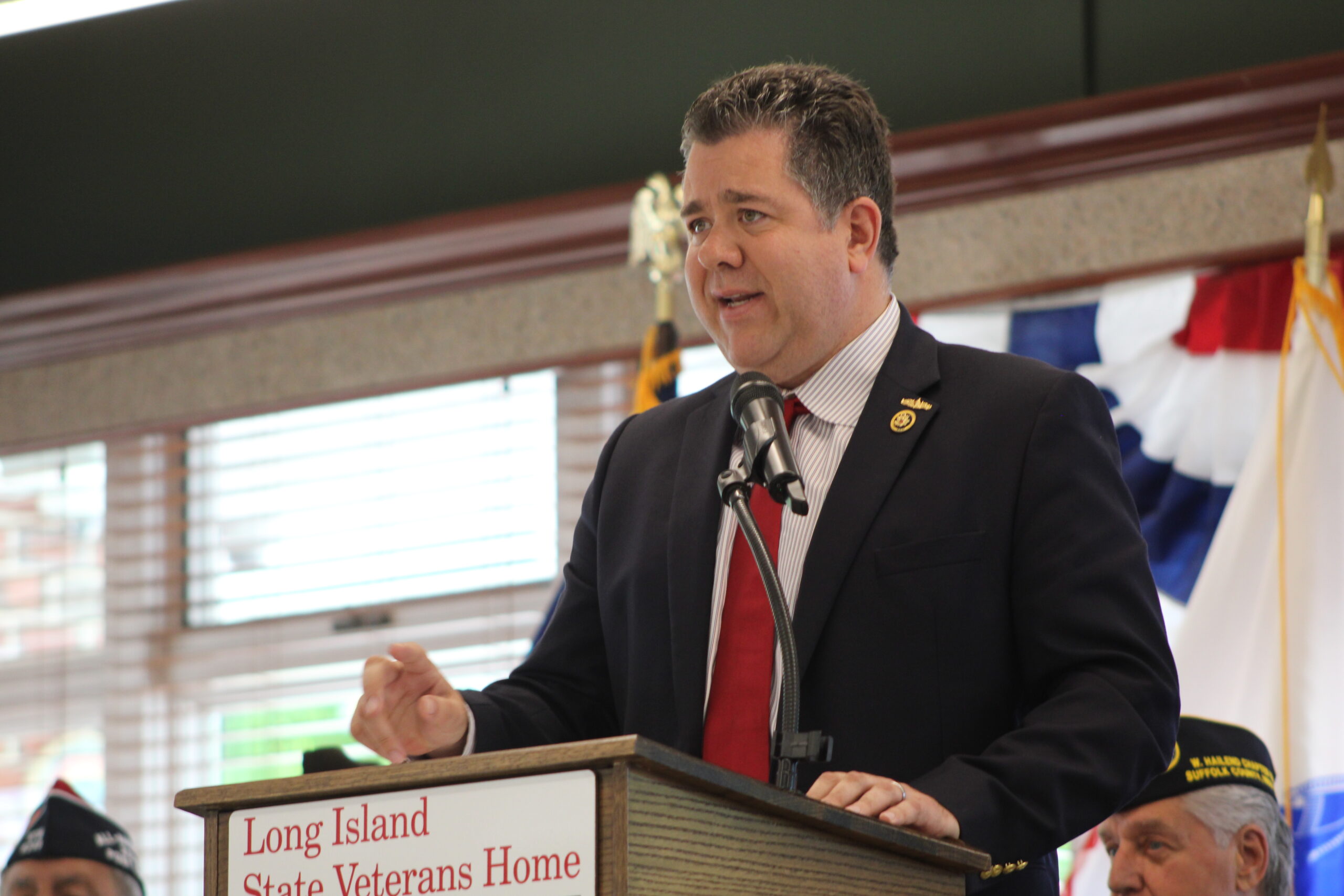
Cover credit – Matt Meduri
As Congressional Republicans weigh potential reforms to Medicaid, Congressman Nick LaLota (R-Amityville) is leading a group of House Republicans in a direct message to party leadership: protect vulnerable Americans and safeguard vital healthcare coverage.
LaLota joined a coalition of Republican lawmakers in signing a letter addressed to House Speaker Mike Johnson (R, LA-04), Majority Leader Steve Scalise (R, LA-01), Majority Whip Tom Emmer (R, MN-06), and Energy and Commerce Committee Chairman Brett Guthrie (R, KY-02). The message is clear: while reforms are necessary to improve the program’s efficiency and sustainability, they must not come at the expense of those who rely on Medicaid the most.
The letter, authored by GOP members from districts with high rates of Medicaid enrollment, reaffirms strong support for the healthcare safety-net program and warns against any legislation that would reduce coverage for vulnerable populations. Among those highlighted in the letter are children, pregnant women, seniors, and individuals living with disabilities, groups that, according to the lawmakers, would be disproportionately affected by sweeping budget cuts or inflexible policy changes.
The signatories expressed concern that Medicaid cuts could have far-reaching consequences not just for individual beneficiaries, but also for hospitals and community health providers, particularly in rural and underserved areas where Medicaid reimbursements play a critical role in keeping facilities operational.
Congressman LaLota and his colleagues emphasized that reforms must be “responsible and compassionate,” and that safeguarding care for those in need should remain a priority. At the same time, the lawmakers endorsed a series of proposed reforms aimed at improving accountability within the system. These include implementing work requirements for able-bodied adults without dependents, limiting eligibility to legal U.S. residents, and increasing the frequency of eligibility checks from once a year to every six months.
These changes, they argue, would help reduce fraud, increase transparency, and ensure that resources are given to the individuals the program was designed to help, without jeopardizing access to care for society’s most vulnerable.
Congressman LaLota’s position reflects a growing sentiment among moderate and pragmatically minded Republicans who view Medicaid not just as a line item in the federal budget, but as a lifeline for millions of Americans, particularly in states like New York. In many Long Island communities, Medicaid supports children with special needs, elderly individuals in nursing homes, and families struggling with the high cost of living.
The letter also strikes a tone of political realism, acknowledging the significant role Medicaid plays in district economies. Many hospitals and clinics rely heavily on Medicaid reimbursements to remain financially viable. Any reduction in coverage or funding could destabilize local healthcare networks, lead to layoffs, and restrict access to essential services, a risk lawmakers say the country cannot afford to take.
While internal GOP discussions on Medicaid reform continue, LaLota’s message appears to set a marker for what a sizable block of Republican members would and would not support. With a narrowly divided House and key appropriations battles looming, such positions could significantly shape the legislative process moving forward.
For now, LaLota and his fellow signatories hope their letter serves as a reminder that healthcare policy must be guided by both fiscal responsibility and compassion. They argue that it is possible and necessary to protect the integrity of Medicaid while pursuing reforms that promote efficiency, reduce misuse, and preserve the program for generations to come.
As debate over entitlement spending intensifies in Washington, Congressman LaLota’s stance may represent a middle path: one that balances conservative principles with the practical needs of constituents and communities across the country.